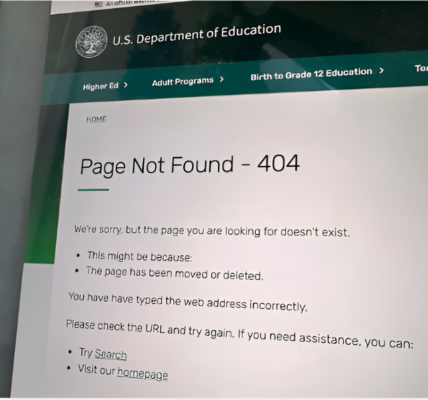
In the latest development of the “America First” movement, MAGA hardliners are turning their attention to the Optional Practical Training (OPT) program, arguing that it is “killing jobs for new American college grads.” This program, initially intended as a short-term opportunity for foreign students to gain practical experience after graduation, is now facing intense scrutiny from critics who claim it provides unfair competition to U.S. workers.
The OPT program allows foreign students on F-1 visas to work in the United States for up to 12 months after graduation, with STEM graduates eligible for a 24- to 36-month extension. Critics argue that it has evolved into a de facto pathway to H-1B visas, a temporary work visa for highly skilled foreign workers, ultimately leading to permanent residency in some cases.
The growing opposition from MAGA groups stems from their belief that the OPT program, which was initially introduced in 1947, has become a key factor in reducing job opportunities for U.S. college graduates. The U.S. Tech Workers coalition, a group critical of guest worker programs, claimed in a statement on Sunday that the program was never intended to be a long-term immigration pathway. “It was supposed to be a short-term opportunity for skill development, but now it has become a permanent avenue for foreign labor to displace American workers,” the group argued.
The debate over the OPT program has intensified as the U.S. faces concerns over a competitive job market for new college graduates. Critics contend that foreign students are often willing to work for lower wages and under less favorable conditions than American graduates, which they believe undermines fair competition.
Proponents of OPT, however, argue that the program has been a vital asset to the U.S. economy, academia, and national security by attracting and retaining talented individuals who contribute to industries like technology, engineering, and healthcare. Many businesses, particularly in STEM fields, have relied on the program to fill critical talent gaps, and some argue that eliminating it could hurt U.S. competitiveness on the global stage.
The Roots of the OPT Program
The OPT program dates back to 1947, when it was introduced to allow foreign students studying in the U.S. to gain practical training in their field of study. Over the decades, both Republican and Democratic administrations have extended the program, with the understanding that it benefits the U.S. economy and strengthens the country’s position as a global leader in innovation and research.
In addition to helping fill labor shortages, OPT is seen as a stepping stone for international students to transition into longer-term work permits such as the H-1B visa. As such, it has become a significant part of the U.S. immigration and labor landscape, despite growing calls for reform.
Potential Impact of Eliminating OPT
If the OPT program were to be eliminated, experts warn that it could significantly alter the U.S.’s appeal to international students, who are often attracted to American universities not only for their academic prestige but also for the career opportunities available post-graduation. The move could potentially push talented individuals to seek opportunities in other countries that offer more attractive post-graduation work options.
Moreover, many employers, particularly in tech and research fields, have expressed concern that removing OPT could lead to a loss of skilled workers. For industries already grappling with talent shortages, the elimination of the program may further exacerbate workforce gaps, ultimately affecting economic growth and innovation.
While MAGA critics argue that it’s time to reevaluate the OPT program to better protect U.S. workers, the broader debate underscores the complex relationship between immigration, labor markets, and the future of American industry.
As discussions continue, lawmakers are likely to face increasing pressure from both sides of the debate. Proponents of the OPT program maintain that it plays an essential role in fostering U.S. innovation and global leadership, while critics contend that reform is necessary to safeguard opportunities for American workers.


